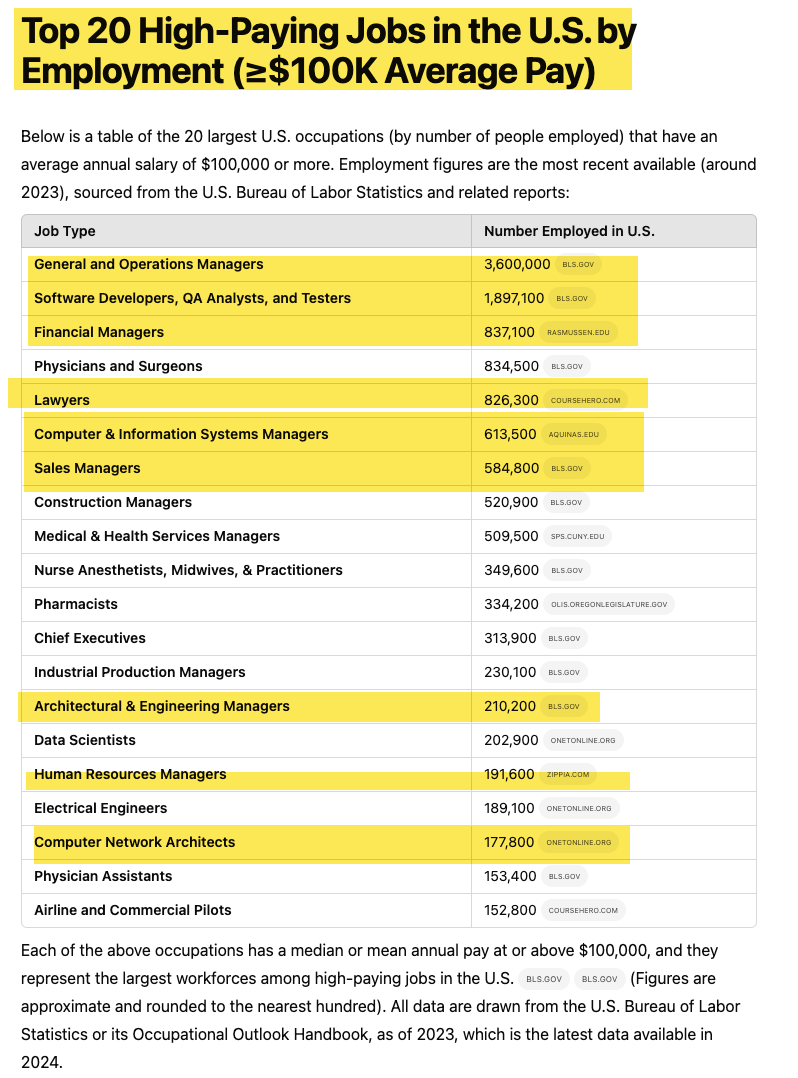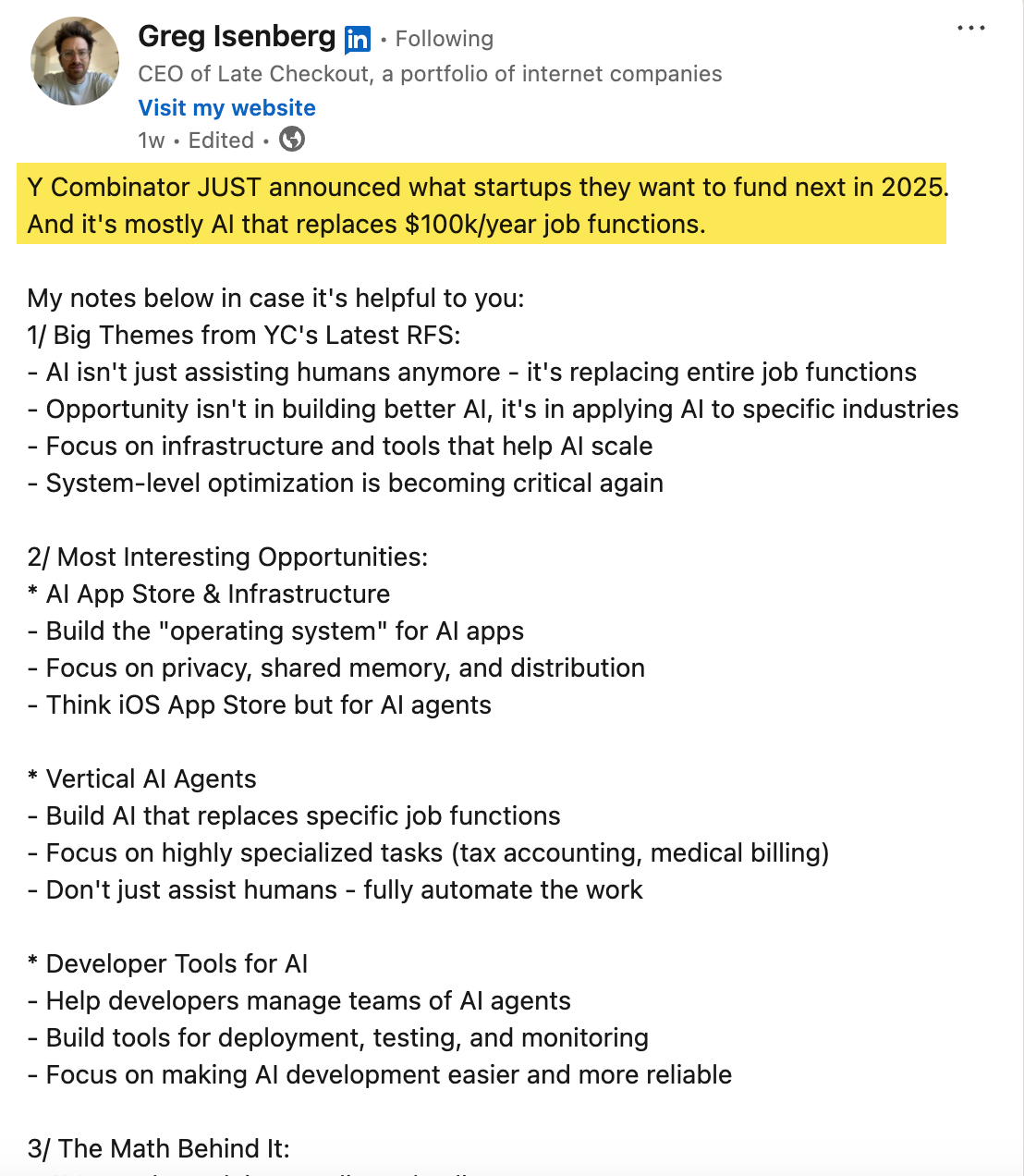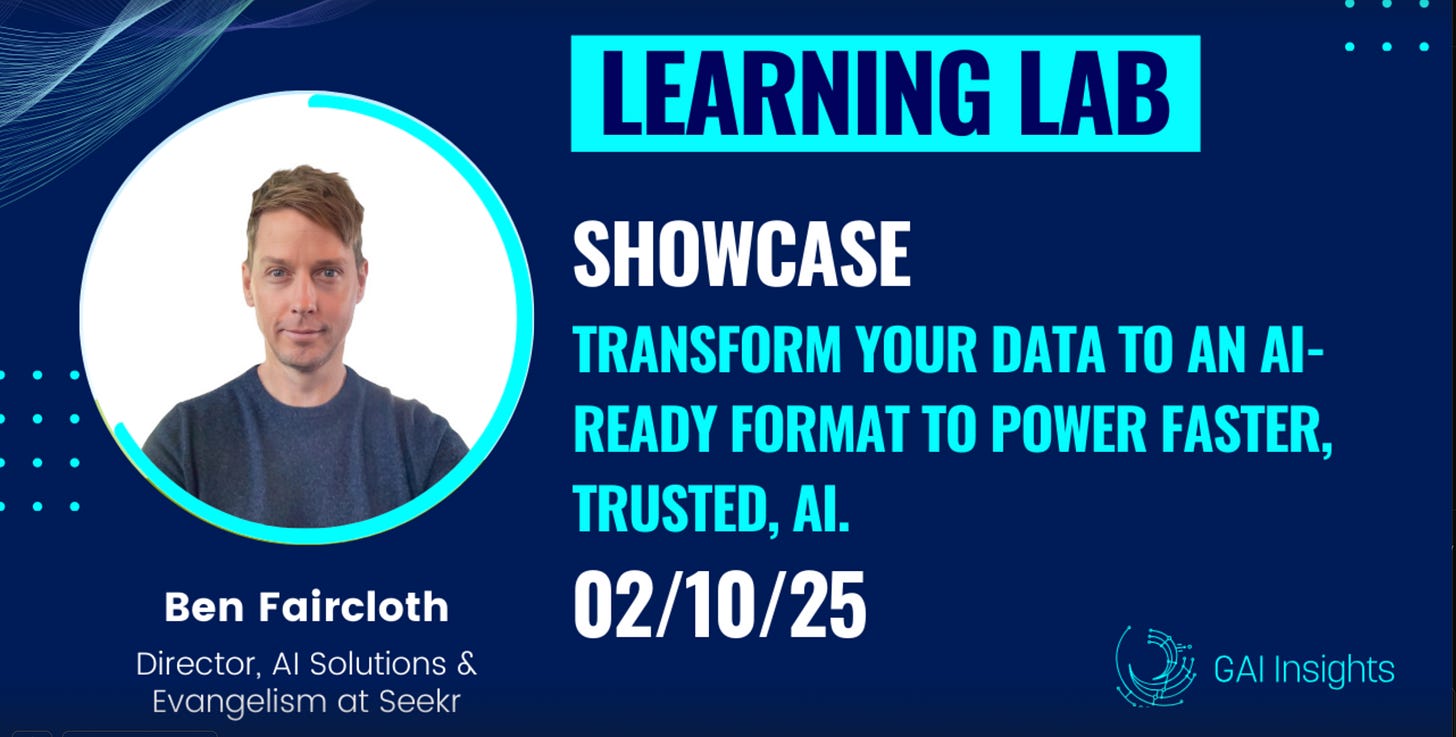AI Startups Target Automating $100K/year Jobs
VC investment in high dollar cognitive tasks automation continues as a blistering pace
Augmenting and automating high-value cognitive tasks is advancing faster than most investors and executives realize.
The key takeaway from the recent “Davos MIT AI Day” is that we are at a unique moment in human history: within two years, AI will be capable of performing 99% of cognitive tasks better than humans.
Our evolutionary "monkey brains" struggle to grasp the speed and scale of this transformation.
Here’s a list of the 20 most common $100K jobs, with my views on which roles will be most impacted between 2025 and 2027 highlighted in yellow.
VC-backed startups are already capitalizing on this opportunity. Greg Isenberg has noted that automating $100K jobs is now the most popular focus of Y Combinator startups.
To be clear, discussions around "AI eliminating this specific $100K job" are short-sighted. The real conversation is about efficiency and scale. Let’s consider a concrete example:
Imagine a company employs 20 outside sales reps or software developers, each earning $175K per year fully loaded (including salary, benefits, office costs, and equipment), totaling $3.5M annually. Could this workload be augmented with AI while retaining 15 employees, resulting in a cost saving of $875K per year? I argue yes. Over three years, this translates to $2.6M in savings. The cost of AI software, training, and support is significantly lower than that. Proven AI technology is no longer the limiting factor—leadership, execution, and compensation structures are.
Automating aspects of software development for $100K+ engineers is by far the most impactful use case in this AI-driven era. Many experts estimate a productivity boost of at least 30%. The AI startup Cursor, which focuses on automated software coding, reached $100M in annual revenue faster than any company in history, including OpenAI.
So, what should investors, board members, and executives do?
Personally dedicate 2 hours per week AI tools – I recommend spending 2 hours per week using AI tools for high-value cognitive tasks. For example, you could ask OpenAI’s Deep Research tool to conduct a comprehensive evaluation of your corporate strategy, industry risks, and opportunities using Michael Porter’s Five Forces framework.
Ensure Board and Executive Teams spend 90 minutes collectively discussion AI impact and priorities at least once a quarter – Encourage boards and executive teams to regularly discuss AI opportunities and risks, using specific examples to drive understanding. Focus on group learning with live demos.
Form specialized AI task forces – Establish cross-functional "tiger teams" of 5-7 people to focus on optimizing 1-2 large groups of $100K/year employees. Position AI as a tool to remove tedious work and prevent future hires rather than as a job eliminator.
Confused about DeepSeek? Listen to our webinar discussing the basics and implications for companies (we recommend that companies need to ban use of DeepSeek by employees and suppliers using your company’s data). Watch for free here.
Transform your data into AI-ready format to power faster, trusted AI — Ben Faircloth, Director AI Solutions, Seekr. TONIGHT at 7p ET / 4p ET. Sign up here
Many companies tell us that it is important for them to offer a Secure Employee ChatBot this year for 10-30% of their employees to improve productivity and employee satisfaction. To reduce confusion, our AI Analysts compiled this feature comparison guide.
Goldman Sachs now has Secure Employee ChatBot to 20% of its 50,000 employees and aims to have 100% coverage by year end.
Download our free comparison guide here (Microsoft and OpenAI reviewed this guide). Watch a recording of our virtual event on this topic here, and let us know what questions you have for your GenAI Employee Chatbot program.
‘Whatever is begun in anger ends in shame.’ – Benjamin Franklin
Onward,
Paul
P.S. You are one of 9,100 subscribers to this newsletter. Please share if you find value.







